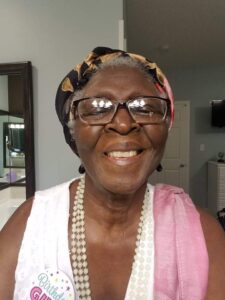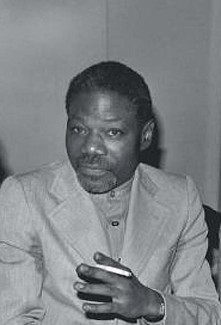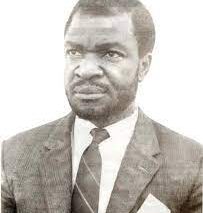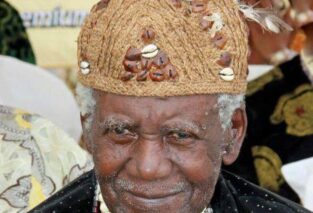
The other day, I stumbled on Ms. Pamela Martin’s FaceBook page by chance and waves at memory beach came washing up the shores of my mind bringing with them, and in stark clarity, something that happened in the early days of my school life in the Cameroon College of Arts, Science and Technology (CCAST) Bambili in Cameroon.
It was through Ms. Martin that I first shook hands with one of Africa’s, nay the world’s, greatest writers, Nigeria’s Chinua Achebe. Together, Ms. Martin and us, her young students, had pondered the tragic fate of the priest of Ulu, Ezeulu, that imposing personality, consumed by the hubris of pride, in Achebe’s Arrow of God.
Contacts then between teachers and students in CCAST Bambili were few and far between. I do not believe that Ms. Martin even knew who I was since I was just one of the over forty students she had in her literature class. But that was to change in an unexpected way. It came to pass that we had to go to Mankon town during one of the national day celebrations to listen to boring speeches from politicians, then march past government functionaries and pledge allegiance to the flag. I do not recall which event it was but it all went well until things turned sour on our return to campus in the evening. The sand-truck, commonly called a ‘tipper’, that the school had hired to bring us back to campus decided to tip its cargo just after the bridge below the Catholic Mission cemetery in Bayelle. It had to happen below a cemetery, of all places.
The driver must have been drunk because he rushed with full speed down the hill leading onto the bridge, which he luckily missed. Had he hit that bridge, he would have tipped us all into the valley below and the story would have been told differently. In fact, as he rushed down the hill many of us began to scream and so did many onlookers by the roadside. The truck careened crazily down the hill, narrowly missed the small bridge before crashing against the hill below the cemetery. It then flung us with great violence into the bush nearby. It was a good thing that the front tires seemed to have stuck onto the muddy side of the hill they had struck else the truck could have fallen back on us as we lay on the grass. How we all survived was a miracle that animated discussions on and off campus for a good part of that year.
I stood up from there without a scratch but without my glasses. I remember turning around, totally confused, searching frantically for my glasses in the tall grass around me. Then I looked up and saw as if the whole city was rushing towards us. From every corner, I could hear screams and shouts and before long hands were holding onto me and someone was asking if I was all right, and urging me to sit down on the grass nearby or to lie down still. There was confusion everywhere but my mind was on my glasses. Lord, what would I do without them? I hoped and prayed that someone would find them because without them, I was practically sightless.
Even though my glasses were found and brought to me the next day at the General Hospital, where some of us had been taken for closer medical observation, they had shattered under the impact of the fall. I was terror-stricken. What was I to do without them? For a week after our release from the hospital, I walked about slowly and cautiously for fear of crashing into someone or something.
It was at this stage that Ms. Pamela Martin came into the story. I do not remember why, of all the people around, I thought of going to her. I wonder if she had ever noticed me before – most probably not. She did not even know my name. After weighing all the options I had, which were not many, I decided that I had nothing to lose by going to her. She was one of the youngest teachers on campus and there was something about her that made me believe she was the right person to approach, and I was not wrong.
One cold morning, my timid hand gave a knock on her door. A few minutes later, someone peeped out from behind the curtains and then I heard the door bolts being unfastened and the door flung open and she invited me in. If she was surprised to see me at her door early that morning, she did not openly express it. I introduced myself shyly and told her that I was one of the victims of the truck crash and that I had lost my glasses in that accident. It was essential that I get new ones, if not I might go blind. I explained that I had brothers to whom I could turn for money but that they were all in far-away Yaounde, and it was not possible to contact any of them. I was sure, I told her, that they would send me money as soon as they were aware of my predicament. But, before then, I needed new glasses at all costs. If she could lend me some money I would surely pay her back as soon as I received money from my brothers.
I do not remember her asking me any question except to express her sympathy and relief that no one had been seriously injured or had perished in that accident. Then she asked me to come back early the next day, which I did. She ushered me in, and gave me an envelope with a hundred thousand francs CFA in it. I do not remember what I said to her. Did I even thank her, or did I just seize the envelope from her hands and fled, eager as I was to go for new glasses? I believe I must have thanked her in my timid voice and then rushed off to Bamenda before heading for distant Douala.
In Douala, I was lucky to remember a relative’s home in the Bonaberi neighborhood where I was warmly received. The next morning, one of the family sons, a young man a few years older than me, accompanied me to an ophthalmologist, who examined my eyes and prescribed new glasses. The sigh of relief I felt as I fitted the new glasses over my nose was fathomless. Not only could I see well again but the new glasses shielded my eyes from the wind that had been directly assaulting them ever since my glasses got broken. It was only then that I realised how much I needed them, not only to see well but also as protection against the direct sun rays, the wind and the dust.
From Douala I was able to contact my brothers in Yaounde, who quickly sent me money by money order which I collected from the post office in Bamenda town as soon as I came back from Douala. It was with a grateful knock on Ms. Pamela’s door that I handed her the money. I do not quite recall what I said to her as I gave her the money. I only hope my usual shyness did not prevent me from expressing my heartfelt gratitude to her. Why she had trusted me with so much money without the guarantee of ever having it back still baffles me to this day, nearly half a century later. I never ever forgot her for her kindness to me at that critical moment in my life.
Several years later, in the late 70s or early 80s, our paths crossed again under different skies. I was a student of translation and interpretation at the Georgetown University School of Linguistics in Washington, DC. She was in charge of the education section at the Cameroon Embassy in the US capital. I have always kept my distance from Cameroon’s diplomatic representations around the world – and with good reasons. A few years prior to meeting her in Washington DC, I had been a student in an immersion Spanish course in Madrid, Spain. I remember exchanging harsh words with one of the embassy officials, a real donkey, who would not sign a document to enable me receive my stipend from the Spanish Foreign Ministry. It was the usual Cameroonian civil service sluggishness in attending to issues of urgency to people which I found hard to stomach.
I remember the fellow in question turning the whole embassy staff against me, accusing me, in particular, and Anglophones, in general, of never being satisfied and of picking quarrels at the mere drop of a hat. It was from him that I heard the expression “ces anglos, les aigris eternels” (anglophones, an eternally disgruntled lot). What he never mentioned to anyone, however, was the private altercation I had with him early that year. I went to the embassy one morning and there, reclining on one of the sofas was a young, eye-catching girl. I sat opposite her the better to feed my eyes on her beauty. She was reading a magazine but I could see that she was aware of my roaming eyes boring holes into her. She then decided to make the best of it by occasionally crossing and crisscrossing her legs, the better for me to see whatever it was I was so eager to see. Oh, that smooth highway to perdition!
The cat-and-mouse game went on for a while before that monster of her father rushed in and, seeing us together, shouted at the girl to get out of there immediately. Then he sat down beside me, stared at me sternly in the eye and said, almost without opening his lips, that he was going to wring my neck, as he said this he twisted some paper he had in his hand to show me how my neck would look like if I was nursing any lecherous ideas concerning his daughter. We sat for a minute in silence, sizing each other up before he stood up and walked into his office, slamming the door behind him with all the pent-up anger he must have felt. Sometime later, I heard he had been warning whoever would listen to be careful with me, calling me a dangerous fellow to watch around anyone’s wife or daughter. “L’anglo là est dangereux; c’est un pervers sexuel, attention avec lui!” So, a few months later when he showed visible reluctance to sign my document, only he and I knew where he was coming from. All he could do was delay the process, though, because when the Spanish Foreign Office contacted the Cameroon embassy, he quickly signed it. When I finally left Madrid in one piece, I vowed to steer clear of Cameroonian diplomatic representations anywhere around the world.
From Madrid, I went to Paris where I succeeded to avoid the embassy there like a plague. I could not avoid Cameroon’s embassy in Washington DC, though. My passport expired and needed to be extended. The embassy building was an impressive two or three-story building with well-manicured lawns and, surprisingly, a polite staff. I remember being met by a well-groomed gentleman at the gate, who ushered me into the consular section where I deposited my passport.
For once, I saw a young, elegantly-dressed Cameroonian woman at a Cameroonian embassy with a smile on her face. I thought I was dreaming. She asked me to come back after a week. Did I really hear her ask me to come back in one week? I asked, not believing my ears. Yes, she said. It’s because the ambassador is out of town, it would’ve been much earlier, she said.
I left, still the sceptic I have always been when it comes to issues of Cameroonian administration. However, barely a few days later, I received a call with the good news that my passport was ready and I could pick it up any work day. Incredulous, I went back to the embassy and, lo and behold, there it was, my passport, the precious tool! I decided to sit at the lobby to peruse through a few Cameroonian newspapers since I had not seen any in years.
It was then that Ms. Pamela Martin walked in. She did not recognize me but I greeted her and told her she had once been my teacher in CCAST Bambili some years earlier. I, however, avoided any mention of the financial assistance she had given me eight years, or so, earlier. We might have talked a little longer but her attention was needed elsewhere and she had to go. She then reminded me that her office was open to all students and that I could stop by whenever I felt like it. I said I would although I knew that was not true. She then wished me success in my studies and we parted company.
Almost forty years to the day we met in Washington DC, I stumbled on her page on FaceBook. Thank you, social media! I have now had the chance to come clean and pay her that much over-due debt of gratitude. Ms. Martin, thank you! It is now nearly half a century since you extended a hand of compassion to a young, timid boy, whose name you did not even know. I thank the good Lord who, in his imponderable wisdom, has brought us together again.
Permit me to take a bow and say: “Thank you, Ms. Martin.” I am happy God Almighty has made it possible for me to pay back this deep debt of gratitude when you and I are still very much alive. You are an awesome human being! May God bless you, Ms. Martin!!



